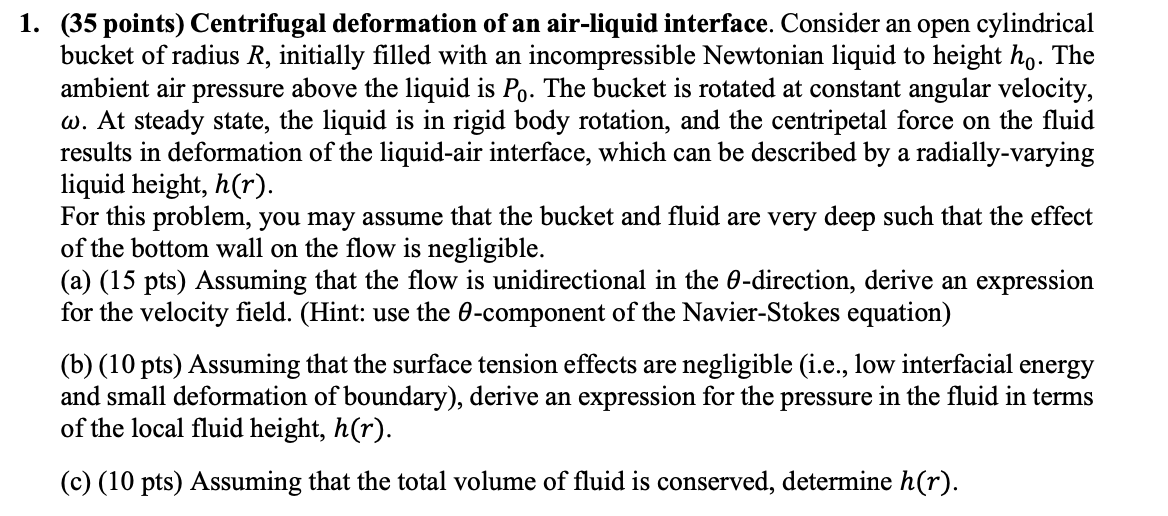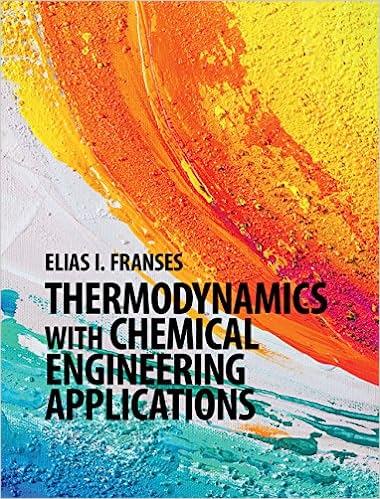Answered step by step
Verified Expert Solution
Question
1 Approved Answer
Centrifugal deformation of an air - liquid interface. Consider an open cylindrical bucket of radius R , initially filled with an incompressible Newtonian liquid to
Centrifugal deformation of an airliquid interface. Consider an open cylindrical
bucket of radius R initially filled with an incompressible Newtonian liquid to height The
ambient air pressure above the liquid is The bucket is rotated at constant angular velocity,
At steady state, the liquid is in rigid body rotation, and the centripetal force on the fluid
results in deformation of the liquidair interface, which can be described by a radiallyvarying
liquid height,
For this problem, you may assume that the bucket and fluid are very deep such that the effect
of the bottom wall on the flow is negligible.
a pts Assuming that the flow is unidirectional in the direction, derive an expression
for the velocity field. Hint: use the component of the NavierStokes equation
b pts Assuming that the surface tension effects are negligible ie low interfacial energy
and small deformation of boundary derive an expression for the pressure in the fluid in terms
of the local fluid height,
c pts Assuming that the total volume of fluid is conserved, determine points Centrifugal deformation of an airliquid interface. Consider an open cylindrical
bucket of radius initially filled with an incompressible Newtonian liquid to height The
ambient air pressure above the liquid is The bucket is rotated at constant angular velocity,
At steady state, the liquid is in rigid body rotation, and the centripetal force on the fluid
results in deformation of the liquidair interface, which can be described by a radiallyvarying
liquid height,
For this problem, you may assume that the bucket and fluid are very deep such that the effect
of the bottom wall on the flow is negligible.
a pts Assuming that the flow is unidirectional in the direction, derive an expression
for the velocity field. Hint: use the component of the NavierStokes equation
b pts Assuming that the surface tension effects are negligible ie low interfacial energy
and small deformation of boundary derive an expression for the pressure in the fluid in terms
of the local fluid height,
c pts Assuming that the total volume of fluid is conserved, determine

Step by Step Solution
There are 3 Steps involved in it
Step: 1

Get Instant Access to Expert-Tailored Solutions
See step-by-step solutions with expert insights and AI powered tools for academic success
Step: 2

Step: 3

Ace Your Homework with AI
Get the answers you need in no time with our AI-driven, step-by-step assistance
Get Started


